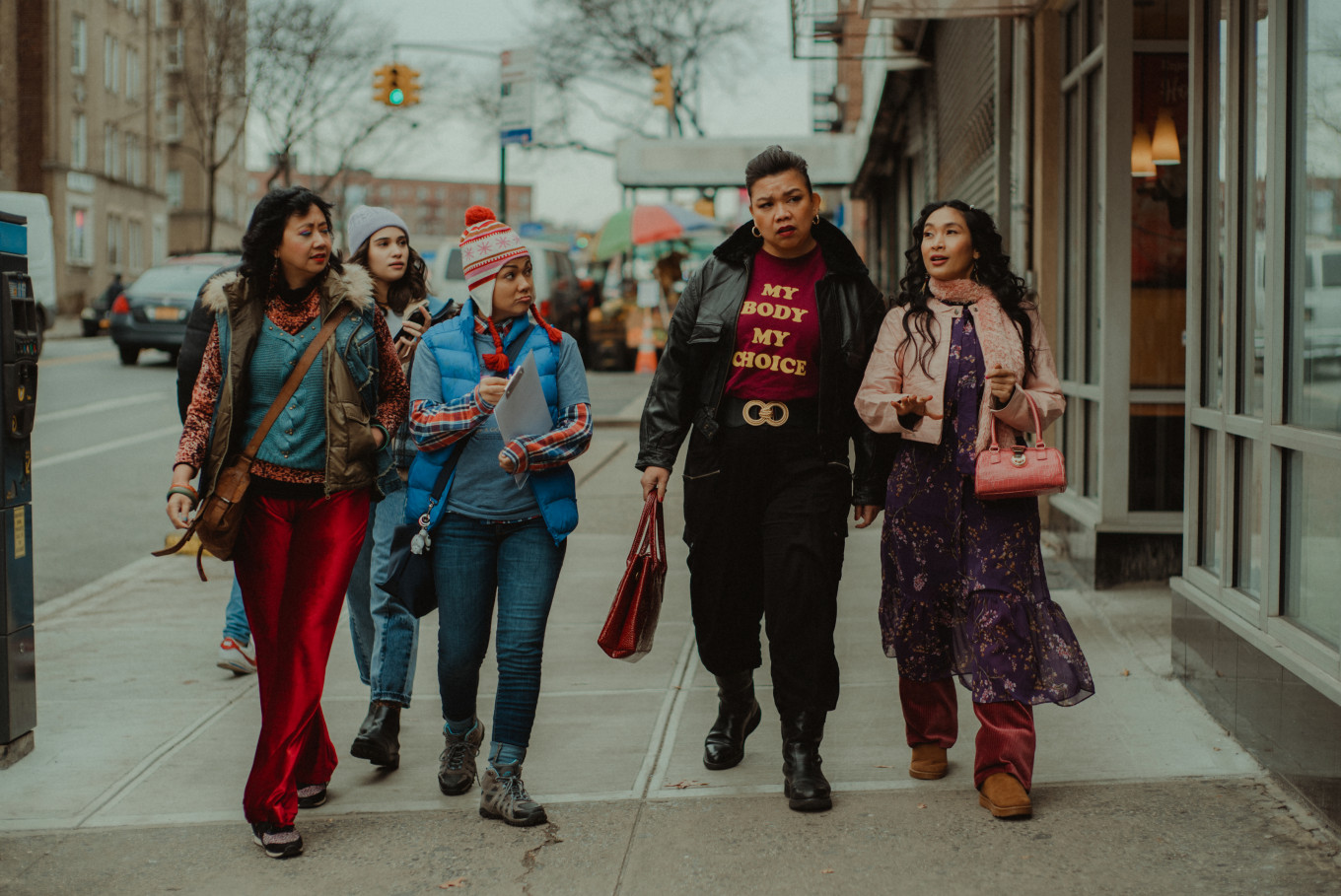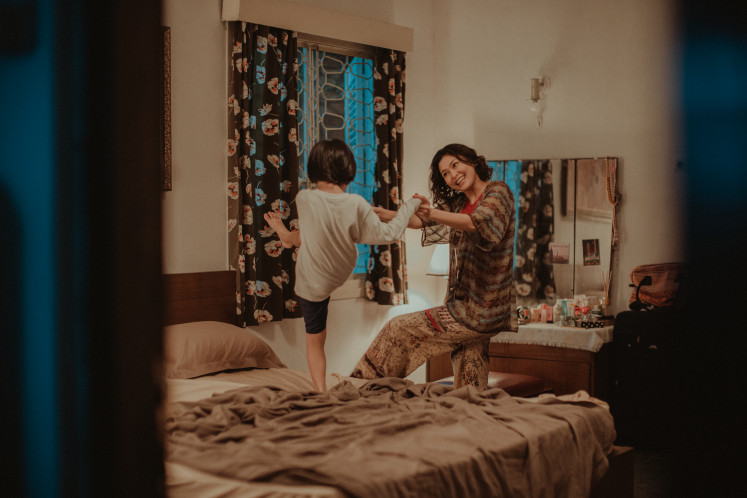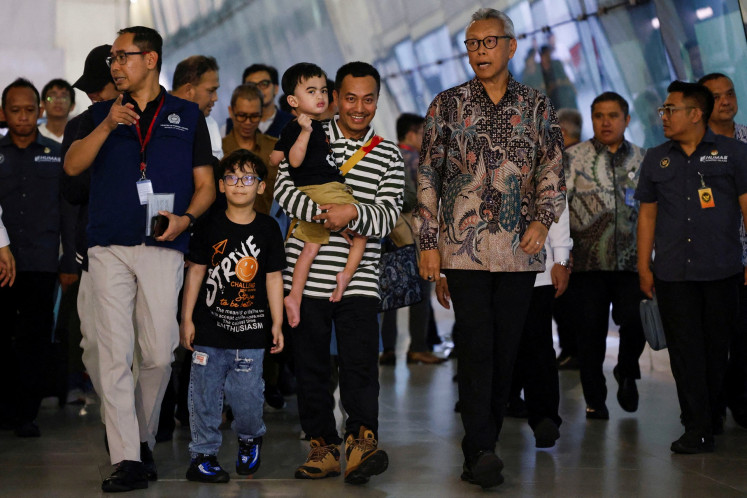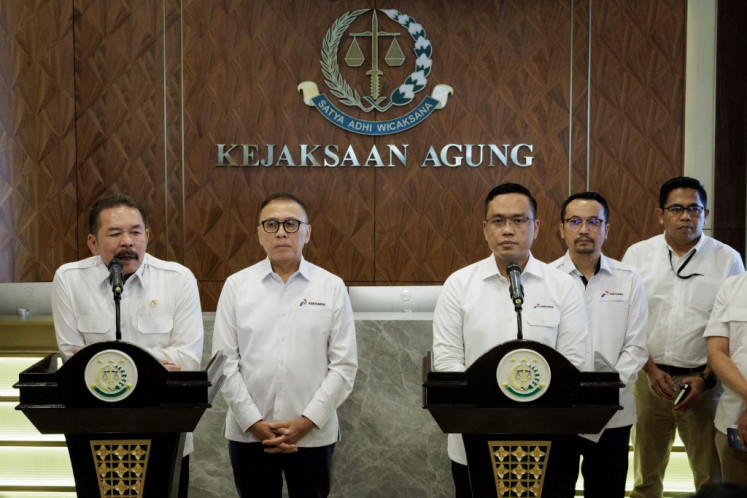Popular Reads
Top Results
Can't find what you're looking for?
View all search resultsPopular Reads
Top Results
Can't find what you're looking for?
View all search results'Ali & Ratu Ratu Queens': Indonesian coming-of-age story redefines the meaning of family
In this coming-of-age comedy-drama, an Indonesian teenager embarks on a journey to New York in search of his estranged mother.
Change text size
Gift Premium Articles
to Anyone

A
li & Ratu Ratu Queens begins with a young mother named Mia (Marissa Anita), who sets out for New York to pursue a singing career. Mia’s husband, Hasan (Ibnu Jamil), waits for her in Indonesia with their son, Ali (Gamaliel Eleazar).
Six months later, Mia’s singing career does not go anywhere. Instead, she becomes a waitress and overstays her visa. Hasan urges Mia to return but she remains adamant about pursuing her American dream. The couple argues over the phone and Mia is soon estranged from her family.
Years later, Hasan passes away and their son, Ali (now Iqbaal Ramadhan), finds a stack of letters from Mia. The letters, which Hasan never responded to, shows Mia’s attempts to remain in her son and husband’s lives. At one point, she even sent tickets for Hasan and Ali so that they could join her in New York.
Ali, who is told that Mia abandoned him, wants to find his mother but faces objections from his extended family. Ali’s aunt, Bude (Cut Mini Theo), relents and writes Ali a sponsorship letter for his visa application.

Despite not knowing anybody in New York, Ali visits Mia’s address in Queens as written in her letters. However, when he arrives at the apartment, Ali is greeted by Party (Nirina Zubir), who used to be housemates with Mia, as well as three other immigrants, Biyah (Asri Welas), Ance (Tika Panggabean) and Chinta (Happy Salma).
The four women, who dubbed themselves Ratu Ratu Queens (Queens of Queens), notice that Ali acts like a fish out of water. They take him under their wing and help him find Mia. While initially struggling with the fact that her son from her "previous" life has suddenly appeared out of nowhere, Mia relents and seemingly allows Ali into her life. The two try to rekindle their relationship but it is clear that there is emotional baggage waiting to unfold.
The four immigrant women become additional mother figures to Ali. Party, Biyah, Ance and Chinta are outgoing, resilient, motherly and laugh in the face of hardship. Party, who is kind and motherly, works hard as a cleaning service worker and wants to open an Indonesian restaurant. Biyah, a tough lady who proudly kept her Javanese accent, works as a paparazzi to make ends meet. Ance, who suddenly became a single parent following the death of her husband, is a tough lady overprotective of her daughter, Eva (Aurora Ribero). Chinta, a dreamer, works as a massage therapist and believes in signs and astrology.
Directed by Lucky Kuswandi, Ali & Ratu Ratu Queens is a tale about a young man who grows up hearing negative stories about his estranged mother but decides to reunite with her instead.
While being filmed in New York, the movie does not focus on picturesque scenes that seemed to be taken from postcards or Instagram posts - unlike some Indonesian movies. Instead, through the lenses of cinematographer Batara Goempar, the movie captures Queens authentically.

The Indonesian characters here, including Ali, did not come from a place of privilege. They are portrayed as people who set foot on American soil with a dream - only to find that the dream might change over time due to circumstances. Viewers might appreciate the characters for trying their best.
The movie cleverly combines comedic scenes and dramatic, gut-wrenching scenes where viewers are forced to decide what is wrong and what is right. The film questions the true meaning of family, in an Indonesian context. The film also questions whether there is only one form of motherhood.
Just like many coming-of-age films, the movie still gives space for teenage romance, as shown between Ali and Eva, Ance’s daughter. Eva encourages Ali to be young in New York despite the challenges he faces there.
The film also plays with the concept of forgiving one’s parents, which is pretty much an alien concept in Asia, including Indonesia, which had its own word for filial piety - durhaka.
Director Lucky Kuswandi told The Jakarta Post that the movie provided a take on a relationship between a parent and a child that was not a one-way street. He added that whatever parents did to their children would also influence how the children perceived their parents. In the end, forgiving one’s parents would come down to who had the bigger heart.

“We can only forgive someone when we fully empathize with the person. This is what we tried to achieve when we worked on Mia’s character,” he said.
Separately, Iqbaal, who portrayed the titular character, said the concept of filial piety was more known in Indonesia, although his close friends did experience turbulent relationships with their parents and later decided to accept them.
“Personally, [this movie] is about finding oneself and acceptance. I don’t want Ali to become bitter with [his] situation [but more on] how he can experience the process to the point of becoming content,” said Iqbaal.
Netflix’s Ali & Ratu Ratu Queens is out on June 17.









